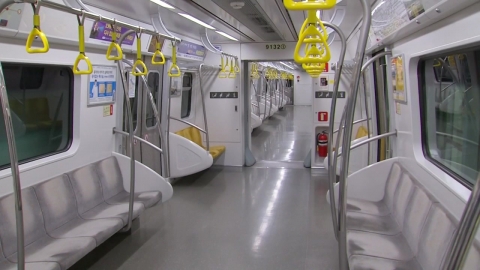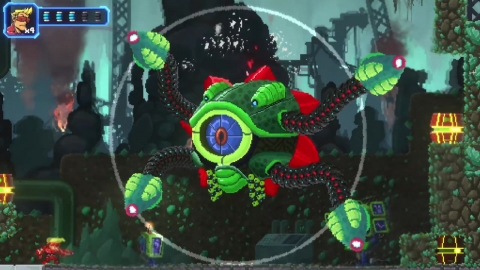In the end, the plastic agreement will be "devastated"... and it won't even make a "declarative agreement."
[Anchor]
The 5th Intergovernmental Negotiation Committee of the Plastic Convention in Busan closed without reaching an agreement on the establishment of an international agreement to end plastic pollution.
It was the issue of "plastic production reduction" that hampered it, but some say that it ended up with empty-handed negotiations as it failed to come up with a minimum "declarative agreement" due to differences between countries.
Reporter Baek Jong-gyu's report.
[Reporter]
The 5th Intergovernmental Negotiation Committee of the International Convention on the Response to Plastic Pollution, which opened in Busan on the 25th of last month, ended.
The world's attention was focused, but the conclusion of the week-long negotiations was "the failure of the agreement."
As more than 170 parties failed to narrow their differences in the end, they did not reach the first legally binding treaty on plastic pollution.
The chairman, who led the negotiating committee, said he had made significant progress in Busan, but stressed that he should acknowledge that a small number of issues are preventing the agreement.
[Lewis Bayas Valvidierso / Chairman of the Plastic Convention Intergovernmental Panel: Our work is not complete yet and we must remain pragmatic as we continue to work together for a common goal.]
He also said he needed more time to resolve the issue and asked to continue negotiations next year.
It was the issue of reducing plastic production that ultimately hampered the negotiations.
The issue was to limit the production of primary plastic 'polymer', a plastic raw material extracted from fossil fuels, but
The regulations were rejected by oil-producing countries and plastic producers such as
Saudi Arabia and Russia.
[Abdulaman Algarwij / Chief Representative of Saudi Arabia: We cannot accept the offer. On behalf of the Arab, there is no agreement on this proposal.]
Some argued that countries directly affected by plastic waste should scuttle the agreement altogether rather than a shameless agreement.
[Sivendra Michael / Permanent Secretary to Fiji's Ministry of Environment and Climate Change: If there is no 'production reduction' clause or we cannot expect an 'ambitious treaty' to be signed, we will go back to the multilateral process and make an effort to conclude an 'ambitious treaty'.]
More than 460 million tons of plastic are produced each year, and production could increase by 70% by 2040,
If the actual agreement had been signed, it could have been a multilateral agreement that would go down in history, like the United Nations Convention on Climate Change.
However, in the midst of sharp conflict, negotiations in Busan did not reach the minimum 'declarative agreement' and ended empty-handed.
I'm BAEK JONG KYU of YTN.
Edit
video; Kang Eun Ji
screen provided;UN web TV
※ 'Your report becomes news'
[Kakao Talk] YTN Search and Add Channel
[Phone] 02-398-8585
[Mail] social@ytn.co.kr
The 5th Intergovernmental Negotiation Committee of the Plastic Convention in Busan closed without reaching an agreement on the establishment of an international agreement to end plastic pollution.
It was the issue of "plastic production reduction" that hampered it, but some say that it ended up with empty-handed negotiations as it failed to come up with a minimum "declarative agreement" due to differences between countries.
Reporter Baek Jong-gyu's report.
[Reporter]
The 5th Intergovernmental Negotiation Committee of the International Convention on the Response to Plastic Pollution, which opened in Busan on the 25th of last month, ended.
The world's attention was focused, but the conclusion of the week-long negotiations was "the failure of the agreement."
As more than 170 parties failed to narrow their differences in the end, they did not reach the first legally binding treaty on plastic pollution.
The chairman, who led the negotiating committee, said he had made significant progress in Busan, but stressed that he should acknowledge that a small number of issues are preventing the agreement.
[Lewis Bayas Valvidierso / Chairman of the Plastic Convention Intergovernmental Panel: Our work is not complete yet and we must remain pragmatic as we continue to work together for a common goal.]
He also said he needed more time to resolve the issue and asked to continue negotiations next year.
It was the issue of reducing plastic production that ultimately hampered the negotiations.
The issue was to limit the production of primary plastic 'polymer', a plastic raw material extracted from fossil fuels, but
The regulations were rejected by oil-producing countries and plastic producers such as
Saudi Arabia and Russia.
[Abdulaman Algarwij / Chief Representative of Saudi Arabia: We cannot accept the offer. On behalf of the Arab, there is no agreement on this proposal.]
Some argued that countries directly affected by plastic waste should scuttle the agreement altogether rather than a shameless agreement.
[Sivendra Michael / Permanent Secretary to Fiji's Ministry of Environment and Climate Change: If there is no 'production reduction' clause or we cannot expect an 'ambitious treaty' to be signed, we will go back to the multilateral process and make an effort to conclude an 'ambitious treaty'.]
More than 460 million tons of plastic are produced each year, and production could increase by 70% by 2040,
If the actual agreement had been signed, it could have been a multilateral agreement that would go down in history, like the United Nations Convention on Climate Change.
However, in the midst of sharp conflict, negotiations in Busan did not reach the minimum 'declarative agreement' and ended empty-handed.
I'm BAEK JONG KYU of YTN.
Edit
video; Kang Eun Ji
screen provided;UN web TV
※ 'Your report becomes news'
[Kakao Talk] YTN Search and Add Channel
[Phone] 02-398-8585
[Mail] social@ytn.co.kr
[Copyright holder (c) YTN Unauthorized reproduction, redistribution and use of AI data prohibited]
Editor's Recomended News
-
In response to the request for a seat..."Making a bloodbath in subway" Furious Tattoo Man in His 20s

-
"A singer who is exempt from military service, please stop appearing on the show".KBS's viewer bulletin board is flooded with complaints.

-
Former Vice Minister of Gender Equality "Let's not call Jung Woo-sung's son out of wedlock."

The Lastest News
-
[Gyeonggi] Yongin City supports the attachment of IoT measuring devices to small businesses.
-
Starting in May next year, people who have not completed military service will also be issued multiple 10-year bills.
-
Joint Chiefs of Staff "Increased accuracy of spraying North Korean balloons..."Fly it with intention".
-
재생
![[Speechless] Jung Sung-guk, "The opposition party is too emotional," Heo Yeong, "Yongsan doesn't know how to politicize." Shin Ji-ho, "Jang Ye-chan, mental breakdown if you know the truth."](https://image.ytn.co.kr/general/jpg/2024/1202/202412021104073548_h.jpg) [Speechless] Jung Sung-guk, "The opposition party is too emotional," Heo Yeong, "Yongsan doesn't know how to politicize." Shin Ji-ho, "Jang Ye-chan, mental breakdown if you know the truth."
[Speechless] Jung Sung-guk, "The opposition party is too emotional," Heo Yeong, "Yongsan doesn't know how to politicize." Shin Ji-ho, "Jang Ye-chan, mental breakdown if you know the truth."



![[Gyeonggi] Yongin City supports the attachment of IoT measuring devices to small businesses.](/img/view/default_img.JPG)





